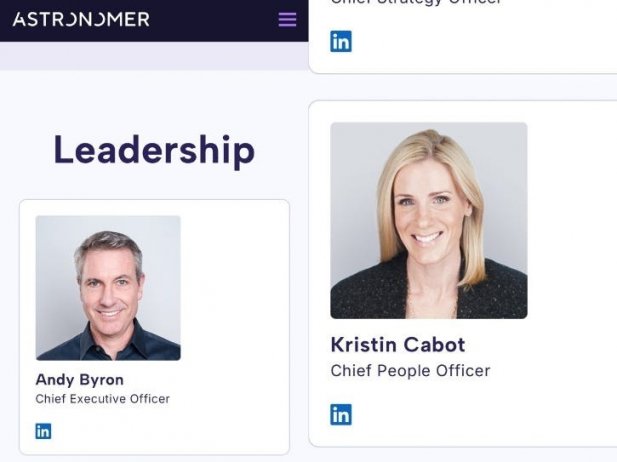On July 16, 2025, a seemingly innocuous moment at a Coldplay concert at Gillette Stadium in Foxborough, Massachusetts, spiraled into a viral scandal that rocked the tech world and ignited a firestorm of online speculation. Kristin Cabot, Chief People Officer at Astronomer, and Andy Byron, the company’s CEO, were captured on the concert’s kiss cam in what appeared to be an intimate embrace. The footage, which showed the pair recoiling in panic upon realizing they were on the jumbotron, was amplified by Coldplay frontman Chris Martin’s playful comment: “Either they’re having an affair or they’re just very shy.” What followed was a whirlwind of social media frenzy, memes, and allegations that has led to significant personal and professional fallout for both individuals. Recently, Kristin Cabot took to X to address the incident, pleading with the internet to “please stop” the ongoing harassment and speculation. This article explores the incident, its repercussions, and the broader implications for privacy and corporate accountability in the digital age.
The Incident That Sparked “Coldplaygate”
The Coldplay concert was part of the band’s Music of the Spheres world tour, a high-energy event attended by 65,000 fans. During a lighthearted segment, the kiss cam panned across the crowd, landing on Cabot and Byron. The footage, later shared on TikTok by user @instaagraace, showed Byron with his arms around Cabot, both appearing relaxed until they noticed the camera. Byron ducked out of frame, while Cabot covered her face, prompting Martin’s quip that fueled speculation about an extramarital affair. The video quickly went viral, amassing millions of views across platforms like TikTok, X, and Instagram. Internet sleuths identified the pair as executives from Astronomer, a New York-based AI and data orchestration company valued at over $1 billion.

The viral moment, dubbed “Coldplaygate,” was exacerbated by the personal details that emerged. Byron is married to Megan Kerrigan Byron, who reportedly removed her husband’s surname from her social media profiles following the incident. Cabot, meanwhile, has a more complex marital history. While some reports initially suggested she was divorced since 2022, DailyMail.com later confirmed she is married to Andrew Cabot, CEO of Privateer Rum, though she was not wearing a wedding ring at the concert. These revelations added fuel to the online fire, with users speculating about infidelity and workplace ethics.
Corporate Fallout and Public Reaction
The incident had immediate professional consequences. Astronomer placed both Byron and Cabot on administrative leave, and on July 19, the company announced that Byron had resigned. In a statement posted on LinkedIn, Astronomer emphasized its commitment to “values and culture,” noting that “our leaders are expected to set the standard in both conduct and accountability, and recently, that standard was not met.” The company also clarified that no other employees were involved in the incident and debunked a fake apology attributed to Byron, which had circulated online and included a Coldplay lyric from “Fix You.”

Public reaction on social media was a mix of empathy, snark, and outright condemnation. X users posted memes, with one quipping, “I don’t know what’s worse. Getting caught cheating or getting caught at a Coldplay concert.” Others expressed sympathy for Byron’s wife and children, with comments like, “My heart goes out to Megan Kerrigan and her two teen sons.” Meanwhile, Cabot’s LinkedIn profile came under scrutiny, particularly a post where she described being “energized” by conversations with Byron and her ability to “win trust with CEOs.” The irony of these statements in light of the scandal was not lost on netizens, who flooded her profile with comments.
Kristin Cabot’s Response on X
On July 19, a post attributed to Kristin Cabot appeared on X, addressing the viral incident for the first time. The post, shared by user @DannyRojasMusic, stated that Cabot and Byron were “begging people to stop online bullying” after the kiss cam moment. While the authenticity of the statement could not be independently verified, it reportedly included a plea from Cabot: “Please stop. This has gone too far, and it’s affecting real people and families.” The post highlighted the toll the online harassment had taken, urging users to consider the human cost of their comments and memes.

Cabot’s plea reflects the intense scrutiny she and Byron have faced. Her LinkedIn activity has been curtailed, with some posts deleted, and she has not issued further public statements. The absence of direct comments from both Cabot and Byron has only fueled speculation, with some X users questioning whether Cabot will also resign or face termination. One user wrote, “You’d have to think that Kristin Cabot will resign or be terminated also,” highlighting the ongoing pressure on her professional standing.
The Broader Implications
The Coldplay kiss cam incident raises critical questions about privacy, corporate accountability, and the role of social media in amplifying personal moments. Mary Angela Bock, an associate professor at the University of Texas at Austin’s School of Journalism and Media, noted, “It’s a little bit unsettling how easily we can be identified with biometrics, how our faces are online, how social media can track us — and how the internet has gone from being a place of interaction to a gigantic surveillance system.” The incident underscores the power of social media platforms like X, Instagram, and TikTok to turn a fleeting moment into a global spectacle, often with devastating consequences.
From a corporate perspective, the scandal highlights the challenges of maintaining professional boundaries in high-profile roles. Cabot, as Chief People Officer, was responsible for fostering a positive workplace culture at Astronomer. Her involvement in the incident, coupled with her professional mandate, has led to questions about the ethics of workplace relationships, particularly between senior executives. Astronomer’s swift response—placing both executives on leave and accepting Byron’s resignation—signals an attempt to mitigate reputational damage, but the long-term impact on the company’s culture and leadership remains unclear.
The incident also touches on the gendered dynamics of public shaming. While both Byron and Cabot faced backlash, some online commentary has been particularly harsh toward Cabot, with users digging into her personal history and marital status. This scrutiny contrasts with the relative lack of attention on Andrew Cabot, her reported husband, or the broader context of Byron’s marriage. The focus on Cabot’s LinkedIn posts and past statements suggests a tendency to hold women in leadership to a higher standard of accountability, a pattern often observed in corporate scandals.
Coldplay’s Role and Public Perception
Coldplay, inadvertently at the center of the controversy, has faced its own scrutiny. The band’s official X account posted about the concert without referencing the kiss cam incident, but fans flooded the comments with references to the scandal. A fake post attributed to Coldplay, claiming they would introduce “camera-free sections for people and their sidepieces,” was debunked by Grok, the AI chatbot developed by xAI, which clarified that no such statement existed. The band’s lighthearted approach to the kiss cam, led by Chris Martin’s off-the-cuff remark, has been both praised for its humor and criticized for amplifying a private moment.
The viral nature of the incident has also sparked memes and cultural references. Independent film distributor Neon used the footage to promote a movie, captioning it “The perfect date night movie,” while the NYC Sanitation Department humorously included the clip in a post about surveillance cameras catching illegal activity. These examples illustrate how quickly a personal moment can be co-opted into broader cultural narratives, often at the expense of those involved.
Moving Forward: Privacy and Accountability in the Digital Age
Kristin Cabot’s plea on X underscores the human toll of viral scandals. While the public’s fascination with “Coldplaygate” is understandable given the high-profile nature of the individuals involved, it raises ethical questions about the boundaries of online discourse. The incident serves as a cautionary tale about the risks of public exposure in an era where cameras are ubiquitous and social media amplifies every moment. For Cabot and Byron, the professional and personal consequences are ongoing, with no clear resolution on Cabot’s status at Astronomer or the state of their respective marriages.
For Astronomer, the challenge lies in rebuilding trust with employees and stakeholders. The company’s statement emphasized its commitment to its mission in data orchestration and AI, but the scandal has undeniably shifted focus from its achievements to its leadership. As the tech industry continues to grapple with issues of workplace culture and accountability, the Coldplay kiss cam incident will likely serve as a case study in the perils of public scrutiny and the need for robust corporate governance.
In conclusion, Kristin Cabot’s call to “please stop” is a poignant reminder of the real-world impact of online virality. While the Coldplay kiss cam moment may fade from headlines, its repercussions for those involved—and for the broader conversation about privacy and professionalism—will linger. As social media continues to shape public perception, the incident highlights the need for greater empathy and responsibility in how we engage with viral content.


